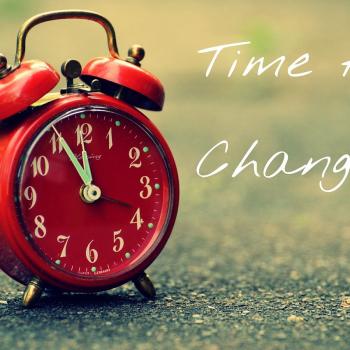Doing some travel for work, I visited an old friend. We don't see each other often, not usually even once a year. We don't share the same religion or culture, nor do we speak the same native language. He has always been philosophically far out of my league. Yet somehow, years ago, we became friends. I think it was over pizza at 3:00 am when I couldn't sleep because of jet lag and he was up for whatever reason. But it has been long enough that I'm not sure whether that's when we first felt the friendship we share. However it happened, we became and have remained friends, and we are very different than one another.
It makes no sense to say that we are friends because of our differences, but it is equally if not more impossible to say that we are friends in spite of them. "In spite of" suggests that the differences create a barrier that must be overcome. Yet there is not and has never been such a barrier. We are just friends. It is as simple—and as complicated—as that.
I do very little for my friend, and he has done a great deal for me. Yet I don't feel a debt to him beyond the great debt of friendship itself. Nor do I think that he feels that I owe him something beyond friendship. He has stayed at my house. I have stayed at his. We have frequently eaten meals together and argued over who will pay the bill. I read his work regularly. He has been kind enough to read mine occasionally and would read it more often if I would let him. He helped me get an appointment as a visiting professor. I have invited him to speak a few times where I teach. We do things for each other, but not in order to accomplish or get something. We do them because we are friends.
Seen from the outside it would appear that our relation is much the same as that which I have with other colleagues. I call them friends, too, though in that case, acquaintance and friend are closer in meaning, though not the same. But from the inside something different is going on in this friendship.
What that is involves emotions, feelings toward another person. But it would be a mistake to think that the difference between friendship and other relationships is a matter of the emotions I feel. Emotions are consequent on the relationships, but they aren't constitutive of them: I feel this way because I am his friend; I'm not his friend because I feel this way.
My friend once expressed the internal difference that marks friendship by saying, "You are a friend whose funeral I will attend." From the outside that may seem slightly macabre. It is probably, though not certainly, hyperbolic. I like to think he would come to my funeral. I hope that I could attend his if he were to predecease me. In truth our circumstances—age and distance, for example—might make either impossible. Yet my friend's attestation perfectly says the truth of our relationship.
Among the "seven corporal works of mercy" of medieval Catholicism the last was burying the dead. (The others: feeding the hungry, giving drink to the thirsty, sheltering strangers, clothing the naked, visiting the sick, and ministering to prisoners.) As an act of mercy, burying the dead is strange. Every other act of mercy involves doing something that helps another person, but the dead are not helped by our burying them. Unlike the other acts of mercy, care for the dead is useless.
Another friend, Paul Moyaert, has argued that though burying the dead is useless in itself, it serves as a reminder that Christian love is about something more than achieving utilitarian ends. The other corporal works of mercy render some benefit to the recipient, but not burying the dead.
Perhaps the very uselessness of care for the dead is its virtue. It is a sign that even when responding to the needs of others, love means more than helping people (which is certainly not to say that helping them with their needs is not essential). Charity is a sign of what Plato called "the Good," and burying the dead reminds us that charity has to do with the Good beyond need as much as it does with human needs.
Aristotle tells us that some friendships are built on usefulness and some are built on pleasure, while others are a matter of the Good. Our friendship, like many friendships, involves all three. But my friend's odd declaration of our relationship shows how friendship and Christian charity come together: we are useful to one another, we enjoy one another's company, and we are related to the Good through our relation to one another. As a relation with the Good, our friendship is a relationship of Christian love, a relationship beyond need.
When we parted, my friend gave me a kiss on the cheek. It wasn't a continental air kiss, but a real kiss on the cheek. I was at once both startled and touched. I couldn't help but be reminded of Paul's "holy kiss" (e.g., Rom. 16:16), a public affirmation of both a love relationship between persons (almost always family in a first-century context) and a sacred relationship with God.
My friend and I don't talk about religion very much. During this visit he asked me to tell his son something about Mormon beliefs, and I did. At another point he mentioned that he had become convinced of the resurrection after a bout with cancer some years ago. But I think that in two days that was more talk about religion than we've had in years. Nevertheless, though our friendship doesn't often express itself through overtly religious discussions or practices, it seems right to say that ours is a relationship of Christian friendship and love. It is a relationship that points beyond us to what transcends utility and pleasure and, by doing so, gives meaning to our friendship—and its utility and pleasure.
12/2/2022 9:09:20 PM





